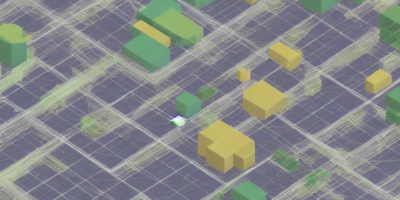In this article, we compare the performance of different algorithms in solving non-deterministic problems. The problem’s size affects the algorithm’s performance, and some algorithms perform better than others as the problem size increases. We use a decomposition method to decompose the original problem into smaller sub-problems, which makes it easier to solve. Our proposed algorithm outperforms other algorithms in most cases, especially for large problem sizes.
Decomposition Method
The decomposition method we use is similar to shuffling a deck of cards and distributing them into smaller packets. This ensures that the sub-problems are similar in size, making it easier to solve them. The sub-problems are then solved independently, and the solutions are merged to obtain the final solution.
Performance Comparison
We compare the performance of our algorithm with other algorithms, including SA, LDM, GR, and QB. Our algorithm outperforms these algorithms in most cases, especially for large problem sizes. SA performs better than our algorithm for small instances, but its performance deteriorates as the problem size increases. LDM always finds perfect solutions for even-sized problems, but it performs poorly for odd-sized problems. GR performs better than SA for large problem sizes.
Improving Trend
As the problem size increases, our algorithm’s performance improves, while the other algorithms’ performance deteriorates. This suggests that our decomposition method is more effective in solving larger problems. The results indicate that our proposed algorithm outperforms existing algorithms in most cases and is a better choice for solving non-deterministic problems.
Conclusion
In conclusion, this article compares the performance of different algorithms in solving non-deterministic problems. Our proposed algorithm outperforms other algorithms in most cases, especially for large problem sizes. The decomposition method used in our algorithm makes it easier to solve the sub-problems, resulting in better performance. These results demonstrate that our algorithm is a better choice for solving non-deterministic problems.



